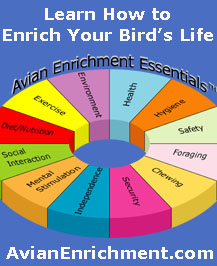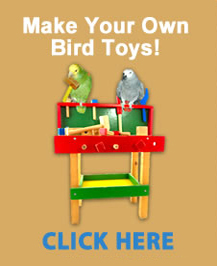Why Does My Bird Sleep on One Foot?
|
Birds use their feathers to generate heat and regulate body temperature. As you know, most parrots have bare, naked legs and feet absent of the covering of insulating feathers. Some experts have stated that a bird's leg gets three times more blood supply to their legs than their flying muscles. Due to the absence of feathers in this part of their body, birds can suffer a lot of heat-loss through their legs and feet. To minimize the excessive heat-loss, they rest one leg in their feathers to keep it warm and use the other to maintain their balance. They alternate which leg is tucked to ensure that one leg always stays warm. In this way, they cut down the heat-loss and control their body temperature simultaneously. Some experts have stated that a bird's leg gets three times ore blood supply to their legs than their flying muscles. Since birds are almost 24/7 on their feet, standing on one leg gives the tucked leg a very much needed rest. Have you ever wondered how a parrot can sleep on a perch and not fall off? Parrots have tendons in each leg that can lock the bird's feet to a branch. Their toes actually tighten around the perch as the bird lowers its body into a resting position and falls asleep. To unlock this tight grip, the bird needs only to stand up straight. Another curious sleeping habit of parrots is tucking their head between their wings. Some people believe this allows a parrot's neck muscles to relax and others think they are just trying to shut out light (akin to pulling a blanket over your head). |







































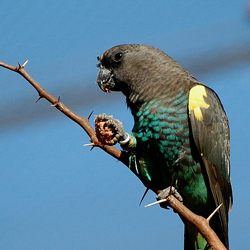


























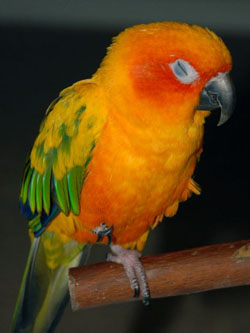 Often a bird settling in for the night will be observed standing on one foot with the other foot tucked up into its body feathers. There are two primary reasons why birds may do this. The first is to conserve body heat and the second is to give their tucked foot a rest.
Often a bird settling in for the night will be observed standing on one foot with the other foot tucked up into its body feathers. There are two primary reasons why birds may do this. The first is to conserve body heat and the second is to give their tucked foot a rest.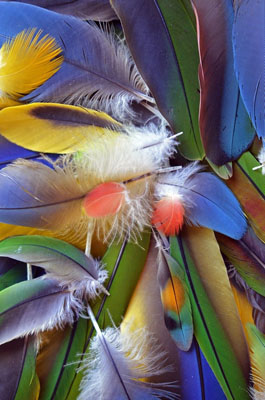 Did you know that parrots can have over three thousand feathers? Over time they wear out and need to be replaced.
Did you know that parrots can have over three thousand feathers? Over time they wear out and need to be replaced. 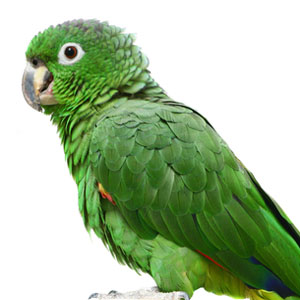 Often when birds are about to fall asleep they gently move their upper and lower beaks in a side to side motion which produces a raspy sound. This is a behavior that should not be confused with teeth grinding in humans which is a sign of stress. To the contrary, when you hear your parrot grinding its beak, this is evidence of a comfortable, relaxed parrot!
Often when birds are about to fall asleep they gently move their upper and lower beaks in a side to side motion which produces a raspy sound. This is a behavior that should not be confused with teeth grinding in humans which is a sign of stress. To the contrary, when you hear your parrot grinding its beak, this is evidence of a comfortable, relaxed parrot!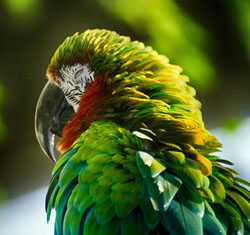 Birds fluff their feathers for a few different reasons:
Birds fluff their feathers for a few different reasons:
